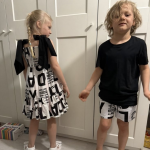Which School Subjects Are Preferable for Children with Autism?
Every child has a tendency toward certain subjects, while lagging behind in others. Autistic children are no exception to this, but they also have specific characteristics that are not related to personal preferences. They often show strong abilities in subjects that require systematic thinking, visualization, and specific rules, but they may struggle with disciplines that involve abstraction or social interaction. Based on research and practice, the following subjects and adaptation methods have been identified as most suitable for them.
1. Mathematics and Computer Science
These subjects are characterized by logical structure, predictable rules, and minimal need for social interaction, which aligns well with the strengths of many autistic children who enjoy creating algorithms or performing calculations. Adapting lessons for them can be done with the help of visual schemes, step-by-step instructions, and digital platforms like iSmart or Happy Numbers.
2. Natural Sciences (Physics, Chemistry, Biology)
Natural sciences are attractive because of practical experiments and visual aids (e.g., chemical reactions and organism models), which stimulate visual channels of perception. Autistic children are better at understanding concrete cause-and-effect relationships, and the perception of study material can be further simplified by breaking experiments into micro-steps, using visual cues, and providing structured reports.
3. Creative Subjects (Art, Music, Technology)
Creative subjects are preferable because non-verbal forms of self-expression (drawing, sculpting, playing instruments) reduce communication pressure. Moreover, autistic children often display talent in detailed work or in accurately reproducing melodies. Teaching these subjects can be adapted by focusing on individual projects instead of group work and selecting materials that take sensory preferences into account (for example, avoiding paints with strong odors).
4. Information Technology and Programming
These subjects involve the development and implementation of clear algorithms and allow students to work at their own pace, with minimal need for verbal communication. Many autistic children are interested in computers and digital systems. Education can be provided through semi-game educational platforms or tasks with instant feedback.
5. Humanities (Literature, History)
Humanities subjects are harder to adapt because autistic children may struggle with abstract concepts (such as metaphors or sarcasm in literature) and interpreting social contexts. Therefore, it’s better to accompany texts with illustrations and focus on facts rather than emotional analysis.
Additionally, when studying foreign languages, challenges may arise in listening and speaking due to sensory sensitivities. The main focus should be on written grammar and the use of PECS cards to learn vocabulary.
Key Conditions for Teaching Any Subject to Autistic Students
- Individualization: The choice of the learning program should depend on the child’s developmental level.
- Visual Support: Use of schedules, diagrams, and pictograms to structure tasks.
- Microlearning: Breaking the material into short blocks, each requiring no more than 10-15 minutes for explanation.
- Motivation: A reward system (stickers, game bonuses) is effective, while criticism can be harmful.
The most suitable subjects for autistic children are those that align with their strengths (logic, visual perception), but success largely depends on the teaching methods. Visualization, structure, and consideration of sensory characteristics are crucial. If children have intact intelligence, full inclusion in general education classes is possible, but in cases of severe autism, the focus should be on developing functional skills and teaching practical subjects.
The Role of Stem Cell Therapy in Supporting Education for Autistic Children
It becomes clear that only the elimination of autism and its symptoms can guarantee successful learning. The most effective and rapid solution for overcoming the challenges faced by autistic students is stem cell therapy — an innovative, safe, and natural method.
Stem cell therapy uses the ability of stem cells to transform into any other type of cell and replace damaged ones with healthy equivalents. Since these cells are taken from the patient themselves, rejection is excluded, and the process stimulates the body’s natural regenerative capabilities. This leads to the normalization of brain and nervous system function, stable and predictable behavior, accelerated development, and the reduction or elimination of autism symptoms, often making them disappear entirely and no longer affect daily life. These changes are long-lasting and often permanent, improving the effectiveness of additional corrective measures.
No other method can achieve such results. Stem cell therapy, though recently developed, is already widely recognized and may become the primary approach in the fight against autism and its symptoms. It is used by leading clinics worldwide, including the Mardaleishvili Medical Center. The clinic boasts highly qualified doctors with extensive successful experience in stem cell transplants and state-of-the-art equipment, helping achieve the best possible results. The world-class treatment is more affordable than in other countries with advanced healthcare systems, and the center also provides comprehensive support for travel planning and other rehabilitation-related matters.
Take advantage of stem cell therapy — and your child will learn with joy!
Autism Treatment Center Videos
Autism treatment with own stem cells
Cord blood association congress
International Quality Crown
Autism Treatment Reviews
Autism treatment with own stem cells
The story of Alessandro (6 years old)
Autism Patient Testimonial - Stem Cell Treatment
Clients Testimonials
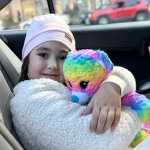
Lidiya — Elina’s mother Read More
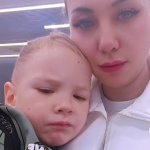
Anna – Sasha’s mother Read More

Amirkhon’s father — Tokhir Read More
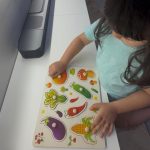
Dilana’s mother Read More
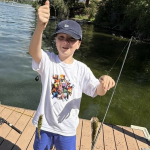
Irina and Stefan – Ilya’s parents Read More
